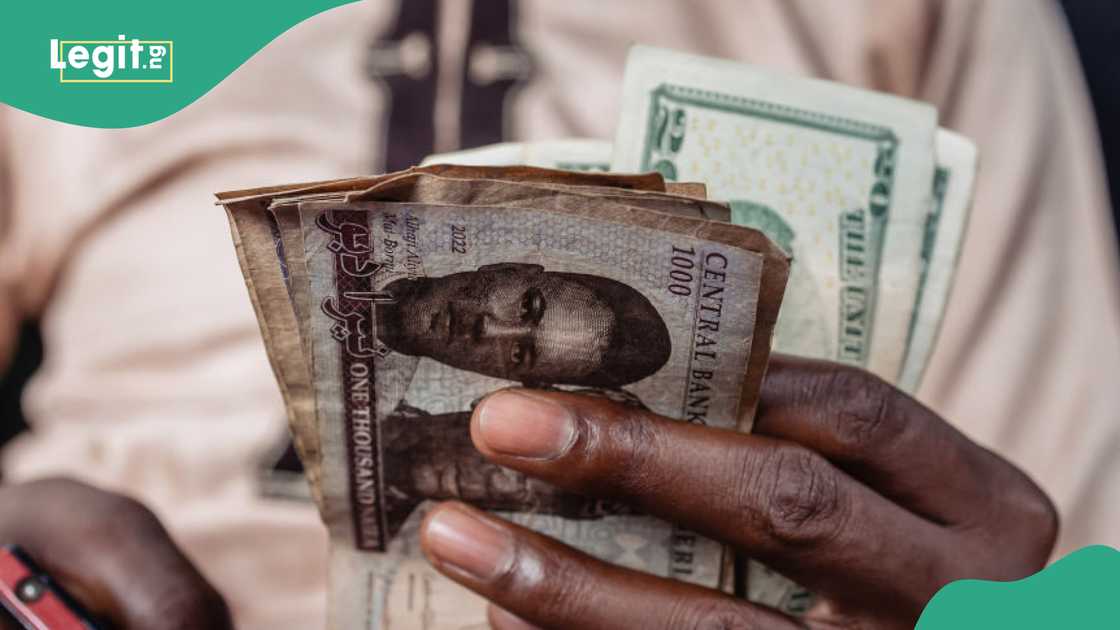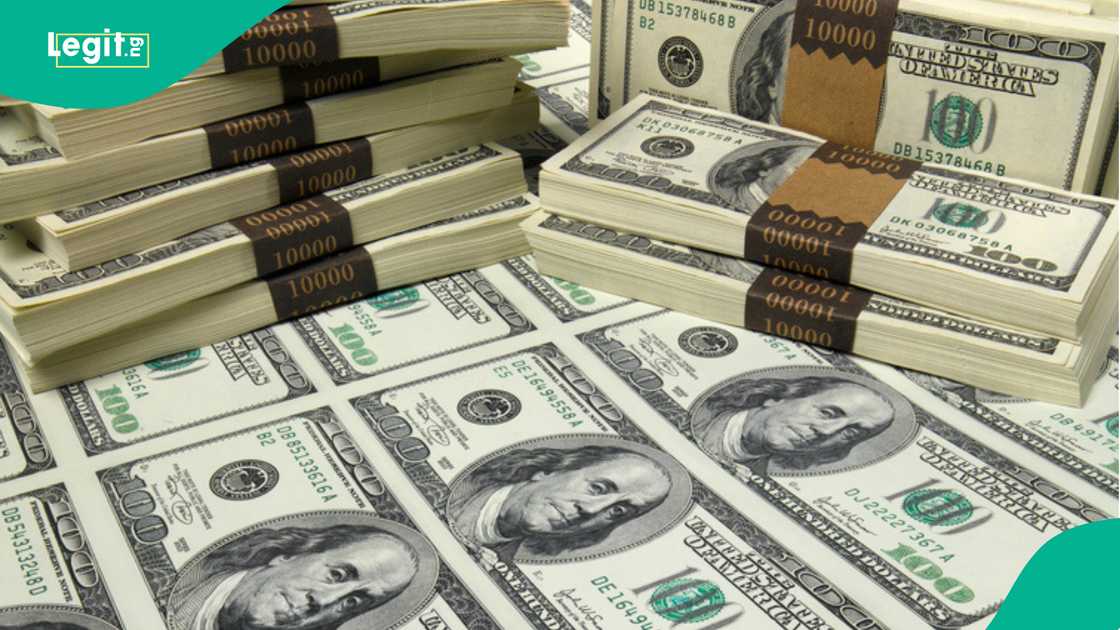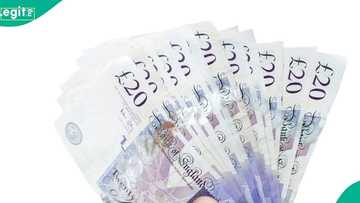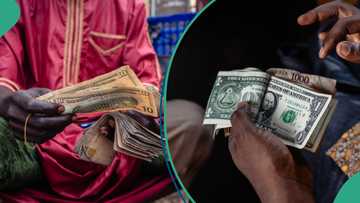Naira Reverses Gain, Crashes to 10-Day Low Against US Dollar
- The naira's strong performance against the US dollar in the official market has cooled off amid demand pressure
- New data shows that the naira’s latest exchange rate against the dollar on Wednesday is the lowest in the last 10 days
- Market analysts said the naira’s recent movement reflects mild demand pressures typical of mid-month transactions
Legit.ng journalist Dave Ibemere has over a decade of experience in business journalism, with in-depth knowledge of the Nigerian economy, stocks, and general market trends.
The naira has further depreciated against the United States dollar on Wednesday, November 12, in the Nigerian official exchange market.
According to the Central Bank of Nigeria's latest update, the naira on Wednesday slipped to a 10-day low of N1,443.08 per dollar.

Source: Getty Images
The currency last traded below this level on October 29, 2024, when it closed at N1,444.42 per dollar.
The latest figures indicate that the naira fell by N4.37 or 0.3% from N1,438.71 on Tuesday, and it marked its third straight day of losses as dollar demand inched higher.
New naira exchange rate
In the same vein, the Nigerian currency lost against the Pound Sterling and the euro in the official market.
For the pound sterling, the naira sell for N1,910 on Wednesday compared to the previous rate of N1,895.65/£1.
It also declined against the euro to close at N1,673/€1 in contrast to Tuesday's rate of N1,663.24/€1.
Rates for international payments on Guaranty Trust Bank’s (GTBank) naira card stood at N1,447 per dollar on Wednesday, up marginally from N1,444 on Tuesday and N1,442 on Monday, showing continued alignment with the official market trend.
At the parallel market, the naira fell by N5 to N1,460 per dollar.'s
Future of naira's exchange rate
Despite the mild decline, traders said the market remains stable, supported by steady liquidity and improved FX inflows.
Currency analysts attributed the latest decline to mid-month demand pressures, adding that fundamentals still favour overall market stability.

Source: Getty Images
A report by United Capital noted that foreign exchange inflows into Nigeria have continued to strengthen from both investment and trade sources, helping to reinforce the naira’s resilience in recent months.
The firm observed that rising dollar supply has helped narrow the spread between official and parallel market rates to below 1%, from around 7% in January 2025.
Although temporary factors such as US trade policy adjustments affected sentiment earlier in the year, analysts said the risk of sharp naira depreciation remains low due to Nigeria’s stable economic outlook., BusinessDay reports.
United Capital stated, citing renewed confidence in the economy’s short-term outlook:
“More investors are now reallocating from dollar assets to naira-denominated investments,”
External reserves at highest level since 2018
Earlier, Legit.ng reported that Nigeria’s external reserves rose to $43.30 billion as of November 5, 2025, the highest level since October 11, 2018.
The surge represents a major milestone for the country, boosting the CBN’s capacity to support the naira amid persistent exchange rate pressures.
Analysts attribute the increase to steady foreign exchange inflows and rising investor confidence driven by the government’s recent fiscal and monetary reforms.
Proofreading by James Ojo, copy editor at Legit.ng.
Source: Legit.ng




